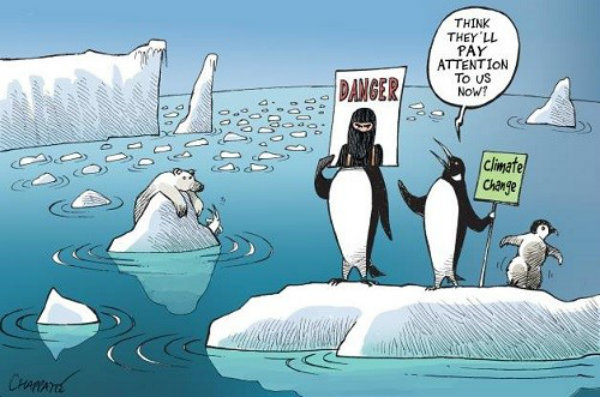The fact our planet’s climate has been affected beyond repair by human intervention is one of the most thoroughly researched and well-established scientific findings of all time. If we are to even partially avoid crippling future generations with debts and dangerously degraded environments, then we need thorough action as soon as possible. A solution was sought in the first-ever universal, legally binding global climate deal within the United Nations Framework Convention on Climate Change (UNFCCC). The agreement deals with actions on country level regarding greenhouse gas emissions mitigation, adaptation and finance. Recently the US, China, EU and India – just to name a few of the major contributors to our global climate change dilemmas, have ratified the agreement. As a result this so-called ‘Paris Agreement’ will enter into force legally within a year, as it is officially ratified by more than 55 countries producing together over 55% of global carbon emissions.
Why the fast track ratification?
The fast-track ratification of the climate deal will cause it to enter into force on November 2016, right before the COP22 starts in Marrakesh (Morocco). Whether or not this is due to personal insights of politicians, smart lobbying by CSOs, foreseen financial opportunities for big business, or even due to Donald Trump calling global warming “bullshit” and a “hoax” and threatening to end U.S. participation if elected president, a new chapter has begun. President Barack Obama hailed the news about ratification as “a turning point for our planet,” and U.N. Secretary-General Ban Ki-moon called the threshold being met “a testament for the urgency of action.” Inspiring words for a symbolic step in the right direction that has proven some sceptics wrong and surely is nothing less than exciting.
However, perhaps a much more realistic explanation for the ‘ratification landslide’ is somewhat less inspiring. First of all, not ratifying would make the dissenting country some sort of a climate pariah, leaving little for parliaments and leaders to debate. The Paris Agreement is known for its weakness in terms of legal obligations, which relates directly to the speed of entry into force. The agreement implies nothing more than countries trying their best keep global temperature increase “well below” 2C and to pursue efforts to limit it to 1.5C. They will peak greenhouse gas emissions as soon as possible and achieve a balance between sources and sinks of greenhouse gases in the second half of this century.
Not so great expectations
In other words, little is to be expected from the agreement and not that many actions are connected to it. An industry of $100bn a year will be pumped into climate finance for developing countries by 2020, with a commitment to further finance in the future got various banks and investors excited and made divestment and ‘going green’ a financially feasible investment strategy. Additionally, countries will review and redefine the progress every five years. In addition, those that have ratified the agreement are allowed to exit the agreement after three years’ time. Meaning that, when push comes to shove, we could be in even bigger problems before New Year’s Eve 2020.
Climate politics are …. politics
In the end, climate politics are no different from your average politics. It remains a game of weighing short-term figures rather than looking at long-term impact. Regardless of any actions we take, today’s society leaves a majority of the work related to cleaning up our fossil-fuelled mess to future generations. Presumably, our children’s children will have the smarts and technology to do so, in their spare time. Either before or after they feed, clothe, educate and house more than 9 billion people.
Much more action needed
Now please don’t misunderstand scepticism for complete cynical distrust. What has been agreed and what comes into force is of vital importance and needs to be done. The main issue is that, if we as a humankind truly want to reach our agreed Sustainable Development Goals for an open, inclusive and green society for all, a lot (a lot!) more action and well-focused finance is needed to combat climate change and its impacts.
Therefore, Hivos urges all groups active at the forefront of fighting the adverse effects of climate change to remain critical and combative as we push towards a better, more inclusive and sustainable agreement during COP22 this November. Join us!




